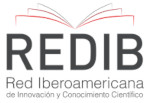Pesquisas em ecoinovação de 1944 a 2016:
um estudo bibliométrico evolutivo
DOI:
https://doi.org/10.31994/rvs.v10i2.572Palavras-chave:
Ecoinovação, Modelos de Negócios, BibliometriaResumo
Este estudo apresenta dados bibliométricos para comparação entre o crescimento das pesquisas entre inovação e sustentabilidade, em uma corrente constante de crescimento, e os estudos da ecoinovação, termo proveniente da junção das duas literaturas, mas que não demonstrou o mesmo potencial de crescimento, tendo, neste estudo, seu crescimento analisado de forma a compreender possíveis correntes acadêmicas ou econômicas que podem acarretar em seu desenvolvimento. Este artigo bibliométrico traz uma demonstração de como as pesquisas em ecoinovação tem sido tratadas, com certo empenho das produções chinesas e europeias, mas com um distanciamento das produções norte americanas e até mesmo brasileiras, o que resulta em lacunas na literatura e, até mesmo no mercado, podendo despertar o interesse por maiores pesquisas na área. Este artigo traz a importante contribuição acadêmica e gerencial na apresentação do distanciamento acadêmico das práticas de ecoinovação, o que traz uma preocupação com o direcionamento que está sendo tomado e é um forte indicativo do distanciamento do mercado, contribuindo para o pensamento de que há uma lacuna e uma oportunidade a serem exploradas.
Downloads
Referências
ANTONIOLI D.; MANCINELLI S.; MAZZANTI M. Is Environmental Innovation Embedded within High- Performance Organisational Changes? The role of human resource management and complementarity in green business strategies, Research Policy, 42, 975-988, 2013.
AVILA, L. V.; LEAL, W.; BRANDLI, L.; MACGREGOR, C. J.; MOLTHAN-HILL, P.; OZUYAR, P. G.; MOREIRA, R. M. Barriers to innovation and sustainability at universities around the world. Journal of Cleaner Production 164: 1268-1278, 2017.
BAINES, T.; LIGHTFOOT, H.; EVANS, S.; NEELY, A. State-of-the-art in product-service systems, Proceedings of the Institution of Mechanical Engineers. Part B: Journal of Engineering Manufacture, 221 (10), 1543–1552, 2007.
BARTOSZCZUK, P. Bariery ekoinnowacji w przedsiębiorstwie. Stud. i Pr. Wydz. Nauk Èkon. i Zarządzania 42 (2), 2–11, 2015.
BEATTIE, V.; SMITH, S. Value creation and business models: Refocusing the intellectual capital debate. The British Accounting Review, 2013.
BERKHOUT, F. Eco-innovation: reflections on an evolving research agenda. Int. J. Technol. Pol. Manag. 11, 191-197, 2011.
BOCKEN, N. M. P.; SHORT, S.; RANA, P.; EVANS, S. A literature and practice review to develop sustainable business model archetypes. Journal of Cleaner Production 65: 42-56, 2014.
BOCKEN, N.; SHORT, S.; RANA, P.; EVANS, S. A value mapping tool for sustainable business modelling. Corporate Governance, 13 (5), 482 – 497, 2013.
BORGHESI, S.; COSTANTINI, V.; CRESPI, F.; MAZZANTI, M. Environmental innovation and socioeconomic dynamics in institutional and policy contexts. J. Evol. Econ. 23, 241-245, 2013.
CAINELLIA, G.; MAZZANTI, M. Environmental innovations in services: manufacturingservices integration and policy transmissions. Res. Policy 42/9, 1595–1604, 2013.
CHEN, J.; CHENG, J. H., e DAI, S. Regional eco-innovation in China: An analysis of eco-innovation levels and influencing factors. Journal of Cleaner Production 153(1): 1-14, 2017.
DIEM, A.; WOLTER, S. C. The use of bibliometrics to measure research performance in education sciences. Research in Higher Education, 54(1), 86–114, 2013.
GAROUSI, V. A bibliometric analysis of the Turkish software engineering research community. Scientometrics, 105(1), 23–49, 2015.
HANELT, A.; BUSSE, S.; KOLBE, L. M. Driving business transformation toward sustainability: exploring the impact of supporting IS on the performance contribution of eco-innovations. Information Systems Journal 27(4): 463-502, 2017.
HORBACH, J.; RAMMER, C. H.; RENNINGS, K. Determinants of eco-innovations by type of environmental impact – The role of regulatory push/pull, technology push and market pull. Ecol. Econ. 78, 112–122, 2012.
KESIDOU, E.; DEMIREL, P. On the drivers of eco-innovations: empirical evidence from the UK. Res. Policy 41/5, 862–870, 2012.
LÜDEKE-FREUND, F. Towards a Conceptual Framework of Business Models for Sustainability. ERSCP-EMU Conference, Delft, The Netherlands, 1–28, 2010.
MEDEIROS, J. F.; RIBEIRO, J. L. D.; CORTIMIGLIA, M. N. Success factors for environmentally sustainable product innovation: a systematic literature review. J. Clean. Prod. 65, 76–86, 2014.
MONGEON, P.; PAUL-HUS, A. The journal coverage of web of science and scopus: A comparative analysis. Scientometrics, 106(1), 213–228, 2016.
OCIEPA-KUBICKA, A.; PACHURA, P. Eco-innovations in the functioning of companies. Environmental Research 156: 284-290, 2017.
PORTER, M.; e KRAMER, M. Creating Shared Value. Harvard Business Review, (February), 2011.
SCHALTEGGER, S.; LÜDEKE-FREUND, F.; HANSEN, E. Business cases for sustainability: the role of business model innovation for corporate sustainability. International Journal of Innovation and Sustainable Development, 6(2), 2012.
SOMMER, A. Managing green business model transformations. Springer Verlag, Berlin Heidelberg, 2012.
STUBBS, W.; COCKLIN, C. Conceptualizing a Sustainability Business Model. Organization & Environment, 21(2), 103–127, 2008.
URBANIAK, W. Innovations in Waste Management. Materials of the 18th International Environmental Protection Congress ENVICON in Poznan. ABRYS LLC Publishing House, Poznan, 2014.
ZIÓŁKO M.; MRÓZ J. The impact of eco-innovation to increase the competitiveness of enterprises. Acta Universities Nicolai Copernicus. Management XLII , 1, 74–82, 2015.
ZOTT, C.; AMIT, R.; MASSA, L. The Business Model: Recent Developments and Future Research. Journal of Management, 37(4), 1019–1042, 2011.
Downloads
Publicado
Como Citar
Edição
Seção
Licença
Copyright (c) 2019 Revista Vianna Sapiens

Este trabalho está licenciado sob uma licença Creative Commons Attribution-NonCommercial 4.0 International License.











